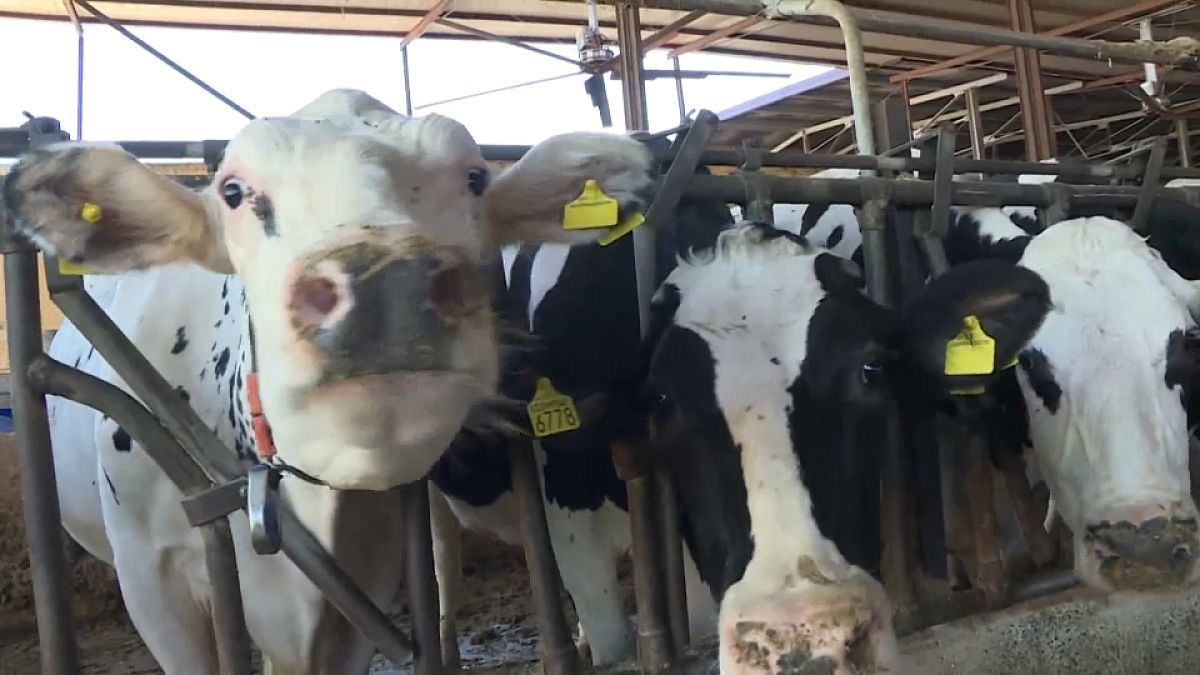Behind the farm, a specific structure extracts bio-methane from animal waste and transports it directly to the front, where customers wait at the pump to get cheap gas.
Producing energy and car fuel from livestock waste: it sounds too good to be true, but this is what is happening on this farm near Piacenza, in Italy's Emilia Romagna region.
The farm boasts 600 cows and produces large quantities of milk. But in addition, the family-run business has diversified into new areas.
"Over the last few years, we have started a project that is allowing us to produce renewable energy and to have an actual circular economy," says owner Nicoletta Cella.
"I mean, we can produce energy from animal excrement and livestock waste, along with agricultural by-products."
Behind the farm, a specific structure extracts bio-methane from animal waste and transports it directly to the front, where customers wait at the pump to get cheap gas.
The transportation of this renewable natural gas or RNG is a direct one, this gas is carried from the producer to the consumer, through just a few metres of pipe.
"We produce bio-sustainable fuel from our livestock waste and the idea of us, an agricultural company, being able to input it into the transport system is extremely gratifying on a personal level," said Cella
The gas station opened last February, a couple of weeks before Russia invaded Ukraine and the subsequent surge in the costs of energy and fuel.
In addition to tackling the energy crisis, the initiative provides a solution to managing methane gas emissions.
According to the European Commission, they massively contribute to climate change and the livestock sector is a major contributor.
This greenhouse gas has more heat-trapping qualities than carbon dioxide and traps 84 times more heat over 20 years than carbon dioxide.
Last year, a coalition of countries signed the first global commitment to cut methane emissions by at least 30% below 2020 levels by 2030 at the UN climate conference COP26 in Glasgow.
The Common Agricultural Policy (CAP) can play an important role as well which has the potential to better support better manure management and biogas production.
For now, this Italian farm has found a sustainable way to fight the crisis, from field to pump.


